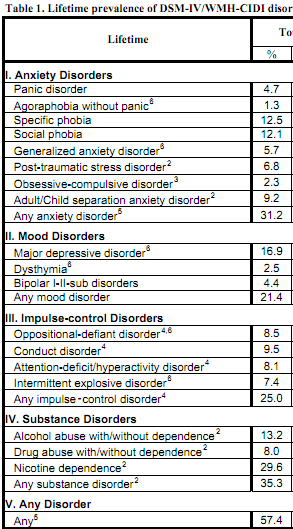Wanted: Designs that Keep us from Going Mad!
Friday, May 20th, 2011 On the cognitive design blog we usually talk about ways to create irresistible think-and-feel-experiences, facilitate behavior change, crank up knowledge-intensive performances or deliver mind moving communications. But there is a darker side. The lack of doing good cognitive design combined with the tremendous mental stresses of modern life contribute to many problems. These range from wasting mental energy to making poor decisions and failures to self-regulate behavior to more serious and clinical mental health issues.
On the cognitive design blog we usually talk about ways to create irresistible think-and-feel-experiences, facilitate behavior change, crank up knowledge-intensive performances or deliver mind moving communications. But there is a darker side. The lack of doing good cognitive design combined with the tremendous mental stresses of modern life contribute to many problems. These range from wasting mental energy to making poor decisions and failures to self-regulate behavior to more serious and clinical mental health issues.
How much of a design-related issue is mental health and how big is the problem? To begin to understand the scale of the problem check out Richard McNally’s new book What is Mental Illness? In it he argues that mental illness is an epidemic:
”Nearly 50 percent of Americans have been mentally ill at some point in their lives, and more than a quarter have suffered from mental illness in the past twelve months. Madness, it seems, is rampant in America.”
The study behind this claim can be found here and reveals the nature of the problems including anxiety, mood, impulse-control and substance abuse disorders.

While the foundation for addressing these challenges should rest on evidence-based practice from behavioral medicine, design has an important role to play. We know this to be true from other healthcare examples. Medicine creates drugs and treatments to cure a wide range of problems but lack of compliance and adherence runs rampant because the way they are delivered is not designed for how the patient’s mind work. My hypothesis is that the effectiveness of programs designed to maintain and restored mental health are even more sensitive to cognitive factors.
We hardly speak of mental health let alone design broad-scale programs to protect it. Interestingly, this is not the case when it comes to brain health or protecting our selves from age related cognitive decline, dementia, Alzheimer’s and other neurodegenerative diseases. For example, check out the CDC’s Healthy Brain Initiative.
Given the scale of the problem, there is a wealth of opportunity for cognitive designers interested in creating programs to protect and restore mental health. Prevention is a natural place to start. As that will no doubt entail behavior change, it might be possible to make small adjustment to ”mental health proof” other behavior change and wellness programs. Now that would be good design.